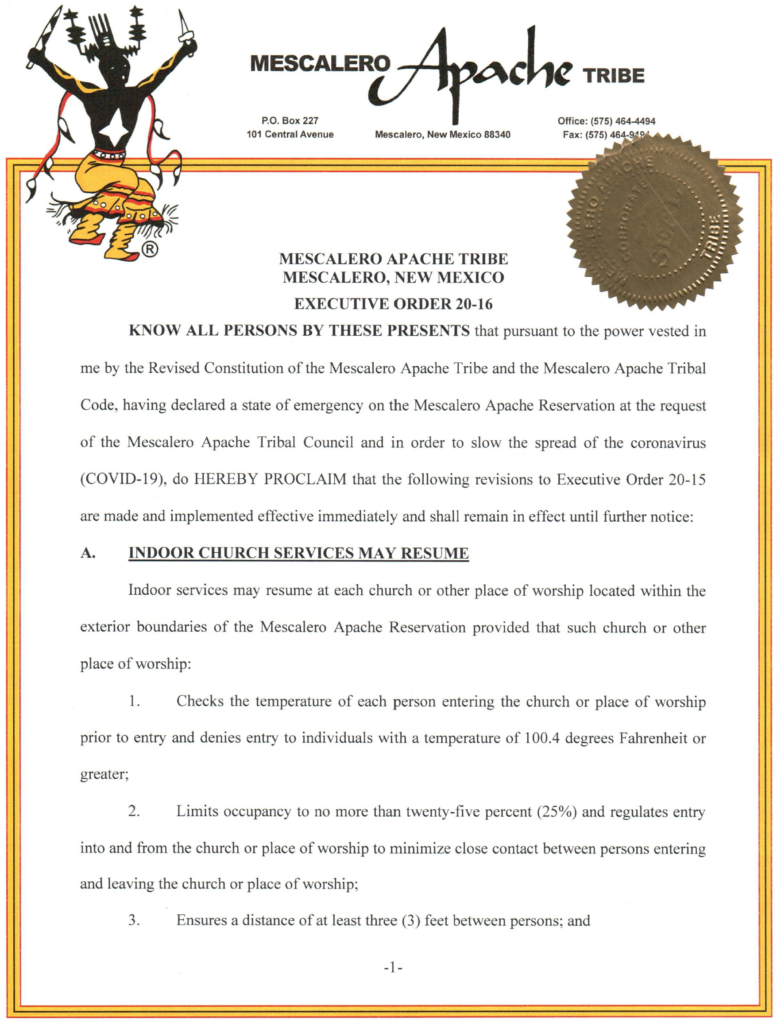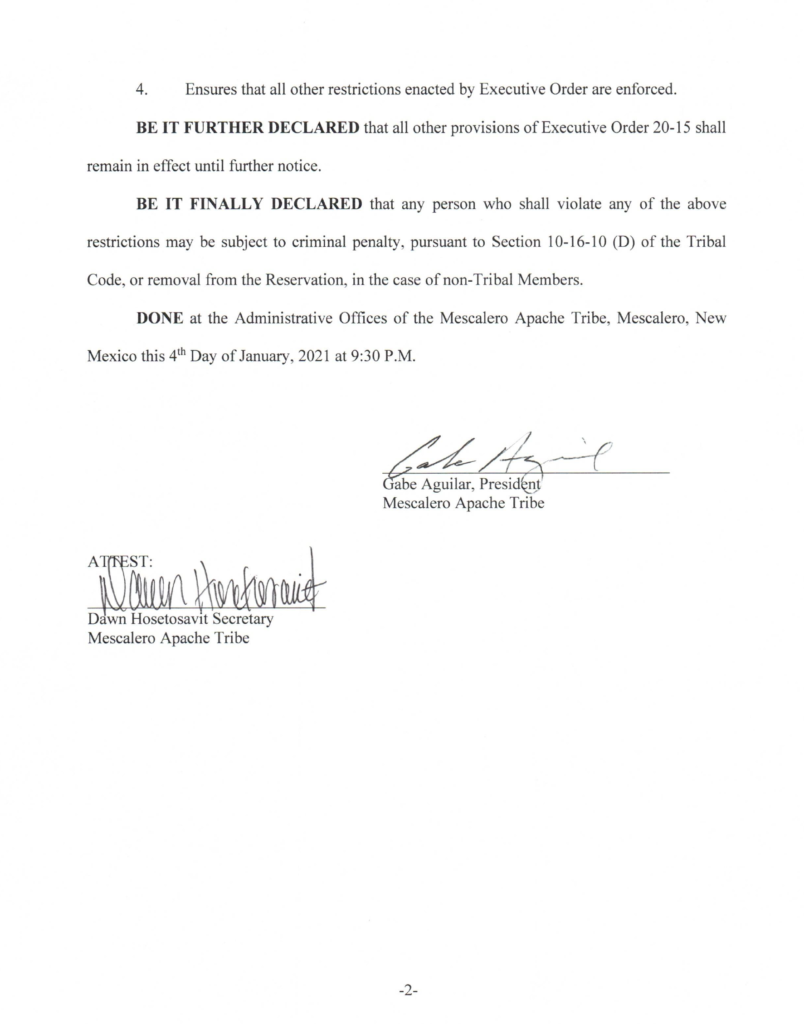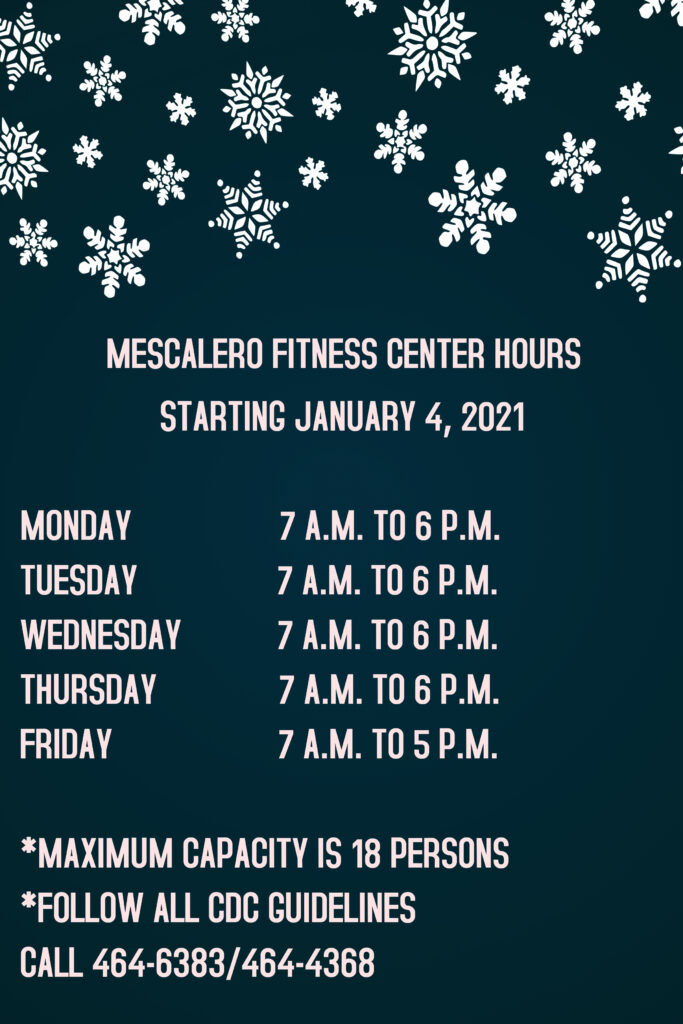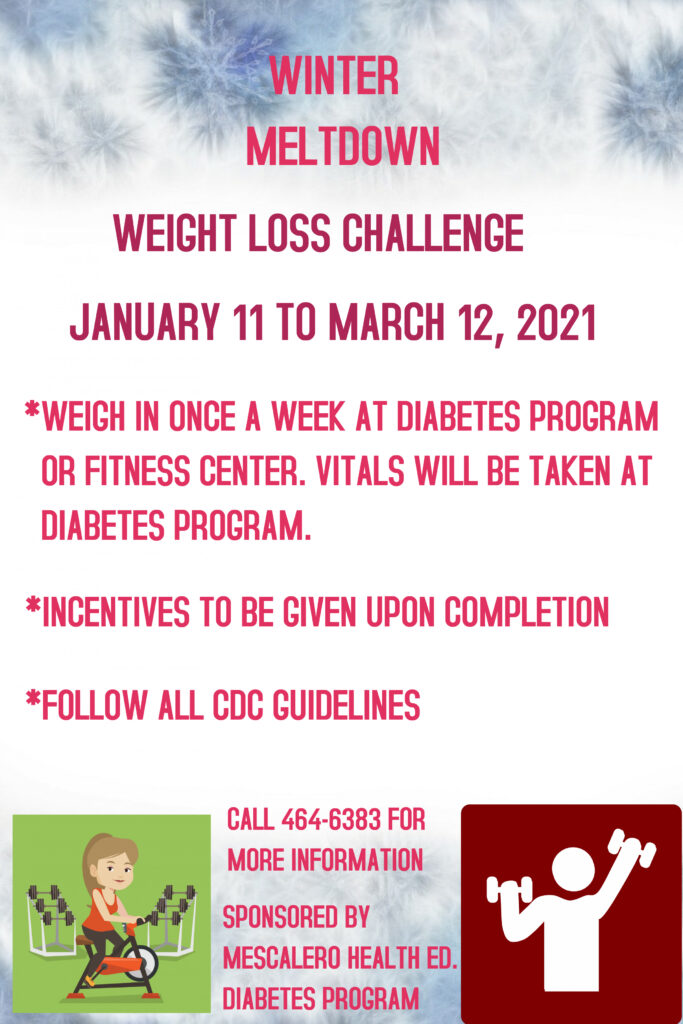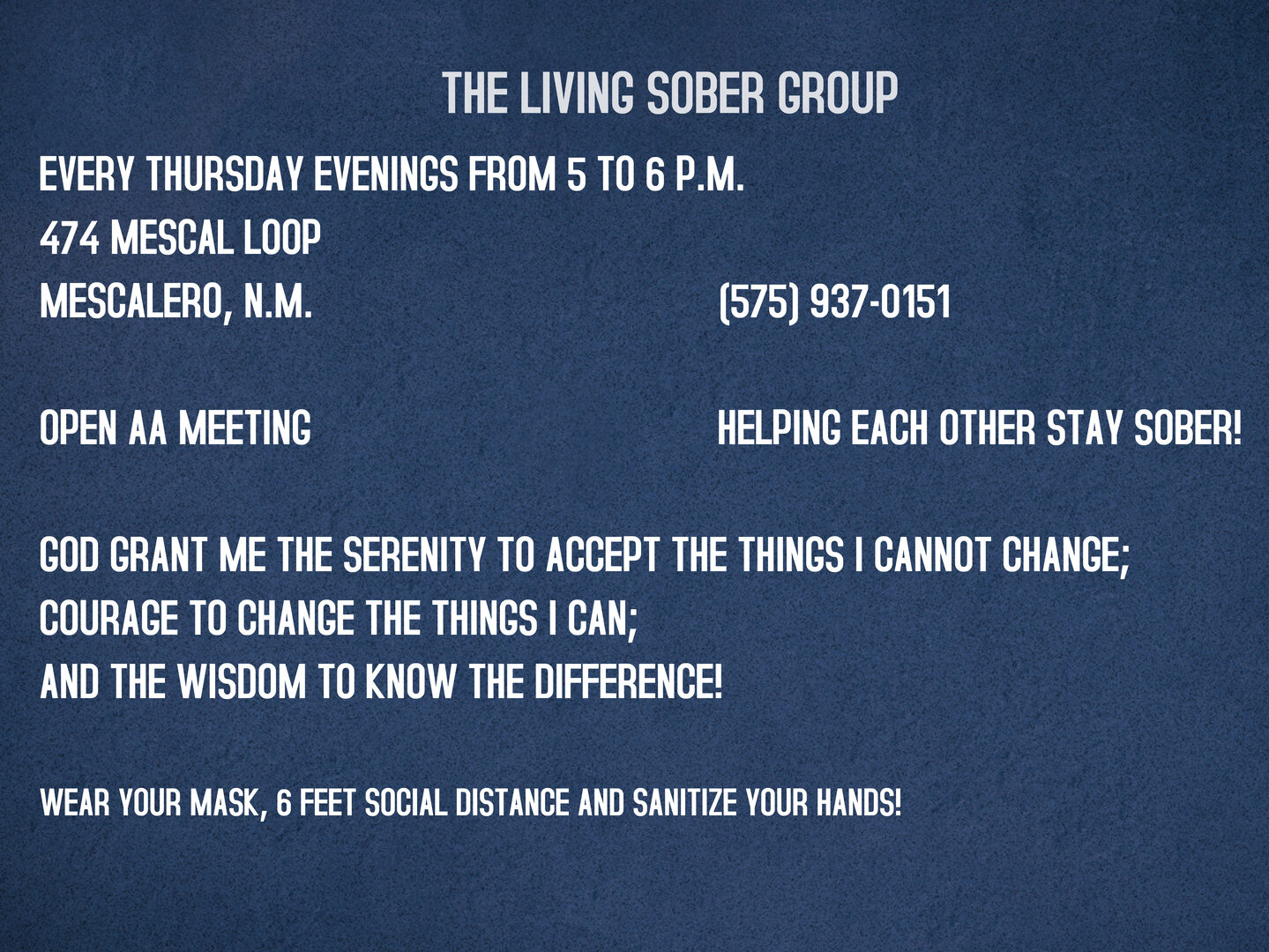
Mescalero Apache Tribe COVID-19 Test Results
As of January 4, 2021:
Negative: 12,937
Total: 13,737*
Positive: 719**
Active: 28
Direct Contacts: 18
Hospitalizations: 2
Deaths: 19***
*Includes testing by IHS & NMDOH
**New cases: 5 (since 01/03/21)
***New deaths: 1 (since 12/29/20)
NEW Executive Order 20-16
New from the Mescalero Health Education/Diabetes Program
Important Message
Due to the increasing COVID-19 positive cases, the Tribe is asking for all Tribal members to reschedule any and all non-emergency doctor appointments only until the lockdown has ended.
We appreciate any cooperation and we encourage you and your family to do your part in slowing the spread of the coronavirus. Please stay home and wash your hands regularly. Thank you and continue to be safe.
Mescalero Apache Tribe COVID-19 Test Results
As of November 10, 2020:
Total: 10980*
Negative: 10519
Positive: 316**
*Includes testing by IHS and NMDOH
** New Cases (since 11-9-20): 14
Total Active: 112
Contacts: 194
Hospitalizations: 12
Deaths: 7***
*** New Deaths (since 11-9-20): 1
Public Defender: PUBLIC NOTICE
If you or someone you know needs to get in touch with the Office of the Public Defender, Zachary Forman can be reached via email at:
Gas Company: PUBLIC NOTICE
November 6, 2020
The Mescalero Gas Company will only be taking propane orders by phone from November 10-13, 2020 and November 16-20, 2020 between the hours of 8AM-2PM.
We will not be doing any Service Work Orders during this time.
The kiosk will be closed beginning Tuesday November 10, 2020-Sunday November 22, 2020 per the Executive Order 20-14.
Stay home, be safe, wear your mask and practice social distancing.
Social Services: PUBLIC NOTICE
Per Executive Stay at Home Order 20-14, Social Services offices will be closed and staff will be providing services remotely from November 10, 2020 through November 22, 2020.
The Mescalero Social Services staff can be reached between the hours of 8:00 A.M. to 4:30 P.M. at the following mobile numbers:
- Peggy Vigil, Program Manager (575) 973-1494
- Judy Prins, Social Worker (575) 973-1520
- Sonia Herd, Social Worker (575) 973-1477
- Samantha Oberlander, Case Manager (575) 973-1525
For any child welfare Emergencies contact BIA Law Enforcement at (575) 464- 4479
Tribal Finance: PUBLIC NOTICE
Child Assistance Stimulus payments being held for Custody/Guardianship through Children’s Court will be distributed on November 24th from 10 am to 4 pm in the Community Center Gym.
Child Assistance Stimulus payments under control of the Mescalero Social Services will be distributed on November 24th at the Social Services office.
Due to the legality of the payments, these checks will not be placed in the mail. If there are any questions, please contact the offices directly.
Tribal Finance
575-464-9312
OR 575-464-9251
Social Services 575-464-9328
- « Previous Page
- 1
- …
- 124
- 125
- 126
- 127
- 128
- …
- 148
- Next Page »
